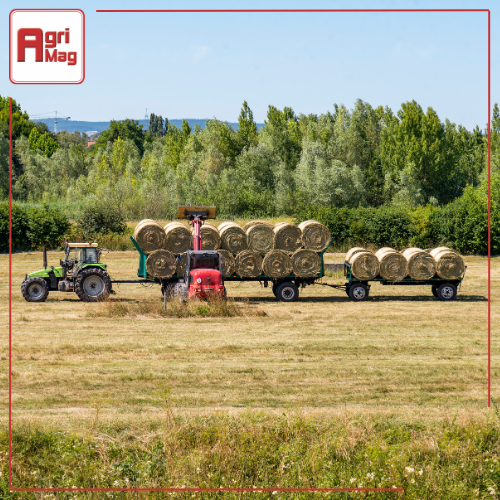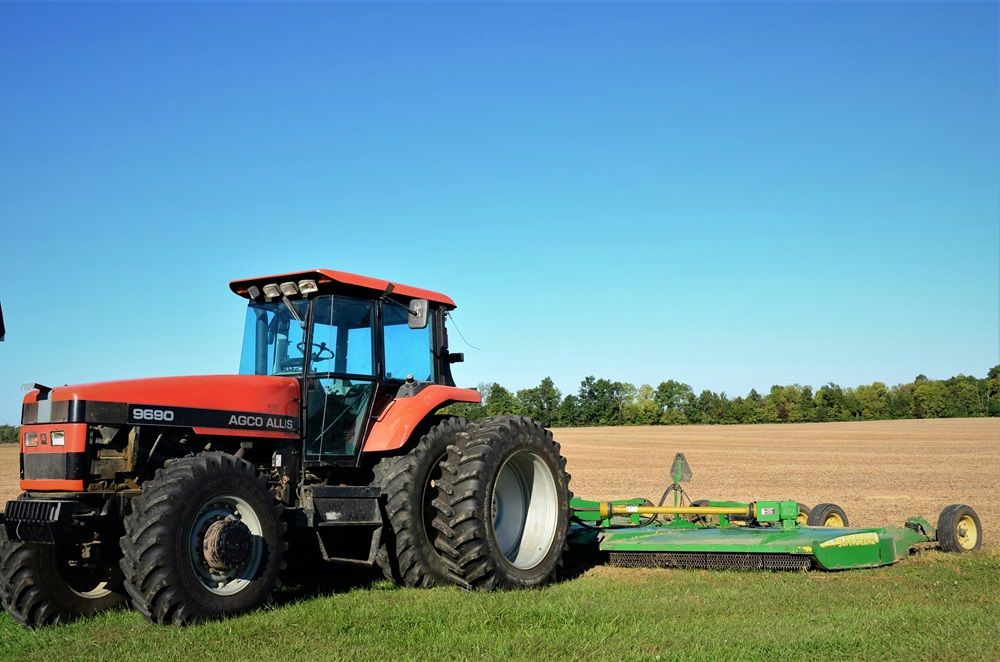
How to Budget for Farming Equipment When Prices Are Rising
Date: 16/04/2025
As the cost of farming equipment continues to rise, it’s crucial for farmers to plan ahead and budget for farming equipment wisely. Whether you're looking to purchase new machinery or opt for used equipment, effective budgeting is key to managing rising costs without compromising productivity. Let’s explore tips and ways to help farmers plan their equipment purchases, financing options, and how to choose used farming equipment as a cost-effective solution on AgriMag today.
 Photo by Roger Starnes Sr on Unsplash
Photo by Roger Starnes Sr on Unsplash
1. Assess Your Equipment Needs Before Buying
Before jumping into buying new or used farming equipment, take the time to assess your actual needs. One of the first steps in managing your farm’s budget effectively is to decide what you truly need and avoid unnecessary purchases.
Key Questions to Ask Yourself:
- Do I need to budget for farming equipment that will be used seasonally, or is this an essential year-round investment?
- Can pre-owned equipment fulfil the needs of my farm as efficiently as a new machine?
- What equipment is critical to running operations smoothly, and which ones can wait?
By evaluating your specific needs, you can avoid making expensive mistakes and prioritise machinery that will yield the highest return on investment. Opting for used equipment may be a great solution to manage costs.
2. Financing Options to Help You Budget for Farming Equipment
Securing financing can help ease the burden of purchasing farm machinery, especially when prices are rising. Budgeting requires careful financial planning, and for many farmers, financing offers a flexible solution.
Financing Solutions for Farmers:
- Bank Loans and Agricultural Credit: Many banks offer loans specifically for agricultural purchases, including farm equipment. These loans are often tailored to the farming season, making repayment easier.
- Hire Purchase Agreements: This allows you to spread the cost of pre-owned equipment over time while still utilising it to generate income.
- Government Grants and Subsidies: Check with your local government and agricultural bodies for funding programmes or subsidies designed for farmers.
3. Save on Costs by Buying Used Farming Equipment
One of the smartest ways to keep within your budget is by purchasing used farming equipment. Used machinery can be just as effective as new models but at a fraction of the price, making it an ideal option for farmers looking to reduce their equipment expenses.
Why Consider Used Farm Equipment?
- Lower Initial Investment: Used equipment costs significantly less than new models, freeing up funds for other necessary investments on your farm.
- Slower Depreciation: Unlike new equipment, which loses value quickly, used equipment depreciates at a slower rate, giving you better value for your investment.
- Reliable Quality: Many dealers and sellers ensure that their used farming equipment is inspected and refurbished, guaranteeing you get quality machinery at a discounted price.
4. Look for Multi-Purpose Equipment to Maximise Efficiency
To make the most of your farming budget, consider investing in multi-purpose equipment. These machines can perform a variety of tasks, helping you save money by reducing the need for multiple machines.
Examples of Multi-Functional Farm Equipment:
- Tractors with Attachments: These versatile machines can perform a variety of tasks, from ploughing to planting to hauling, making them a great investment for any farm.
- Utility Vehicles: These vehicles can handle a range of duties, including transport, fieldwork, and even material hauling.
- Combined Harvesters: Harvesters that combine cutting, threshing, and cleaning are essential for streamlining operations on grain farms.
 Photo by chris robert on Unsplash
Photo by chris robert on Unsplash
5. Maintenance to Protect Your Farming Equipment Investment
Another critical part of budgeting is ensuring that your machinery is well-maintained. Regular maintenance can significantly extend the life of your farm equipment, preventing expensive repairs and replacements down the road.
Key Maintenance Tips:
- Regular Servicing: Follow the manufacturer’s maintenance schedule to keep your used farming equipment in peak condition.
- Training for Operators: Properly trained staff can reduce wear and tear, ensuring your equipment lasts longer and performs better.
- Spare Parts Availability: Stocking common spare parts ensures you can make quick repairs before minor issues turn into expensive breakdowns.
6. Take Advantage of Discounts, Auctions, and Offers
Another way is by seeking out discounted farm machinery and attending auctions. Many farmers find excellent deals through these channels, often securing equipment in good condition for less than retail prices.
Where to Find Affordable Equipment:
- Farm Auctions: Many agricultural machinery auctions offer high-quality equipment at competitive prices.
- Seasonal Promotions: Keep an eye out for sales or promotions, especially during the off-season, when dealers often offer discounts.
7. Plan Ahead and Compare Prices to Save Money
The key to effective budgeting is to plan ahead and compare prices before making any equipment purchase. This strategy ensures that you find the best deals while sticking to your budget.
How to Plan Your Budget:
- Research Multiple Suppliers: Don’t settle for the first quote you receive—shop around for the best price on farm equipment.
- Consider the Total Cost of Ownership: Look beyond the upfront cost and factor in maintenance, repairs, and insurance when comparing equipment.
- Stick to Your Budget: It’s easy to be tempted by flashy features or discounts, but always ensure that the equipment fits within your financial plan.
Taking the time to research prices and plan your purchases can help you budget for farming equipment more effectively and avoid overspending.
In South Africa, managing your finances while dealing with rising equipment costs is a challenge, but with the right strategies, you can make smart decisions. By assessing your equipment needs, opting for used farming equipment, and exploring financing options, you can reduce costs and keep your farm operations running smoothly.
By incorporating these strategies, South African farmers can budget for farming equipment effectively, ensuring that they have the necessary tools to maintain a productive farm while staying within their financial means. Whether you’re purchasing used farming equipment or seeking financing options, being proactive and strategic will help you navigate economic challenges successfully. For affordable equipment, visit AgriMag and start saving today.
Categories:
Common category
Category Search:
Latest articles:

How to Budget for Farming Equipment When Prices Are Rising

Choosing the Right Breed for South African Climates

Managing Livestock Health in Drought Conditions: Tips for Farmers


